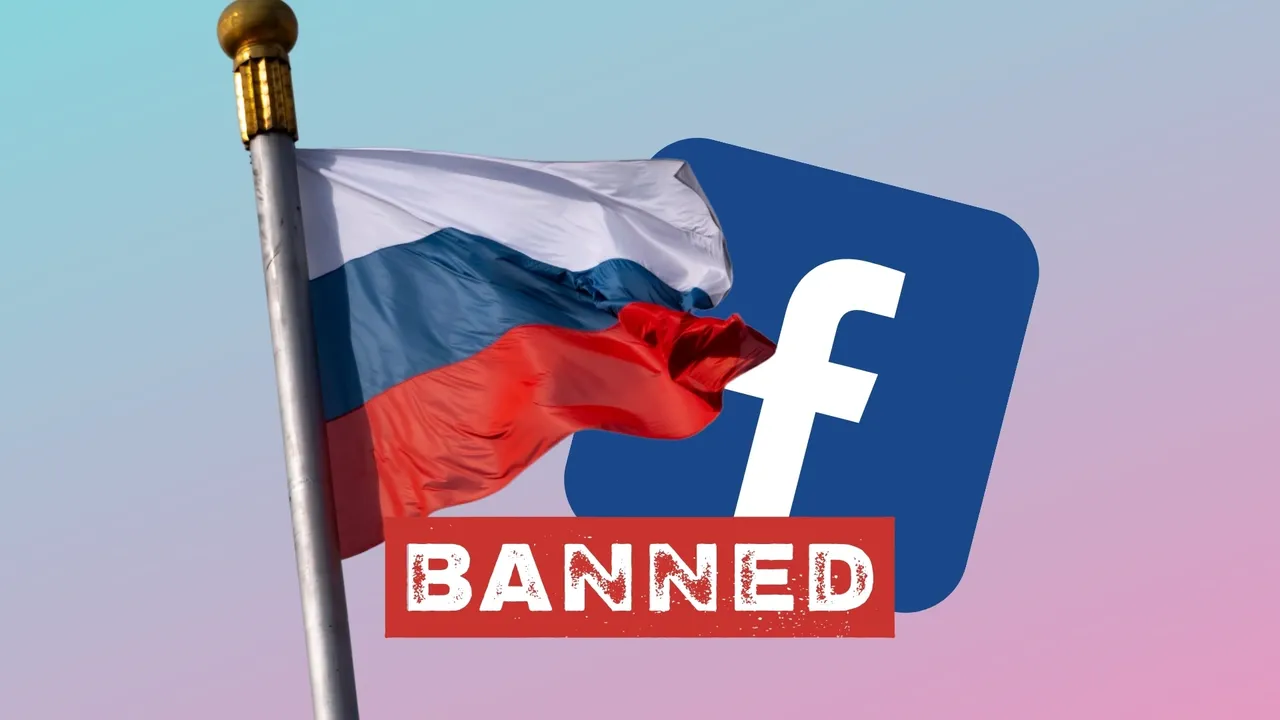With tensions rising by the hour, the Ukraine conflict has spurred the use of social media as key tools to help raise awareness, connecting Russian and Ukrainian citizens to real-time updates as the situation unfolds.
However, for Russian users, this just got a bit more difficult. The Russian Government is allegedly restricting access to Facebook over claims that it restricted the accounts of four Russian Media Outlets.
Russia’s communications and tech regulator said:
“On February 24th, Facebook restricted the official accounts of four Russian media outlets – the Zvezda TV channel, the RIA Novosti news agency, and the Lenta.ru and Gazeta.ru Internet sites. Such actions in relation to Russian Internet resources and the media are prohibited by Federal Law. [We have] sent requests to the administration of Meta Platforms to remove the restrictions imposed by Facebook on Russian media, and explain the reason for their introduction. The owners of the social network ignored the requirements.”
‘Da’ Wall
For the reason above, Russia’s Service for the Supervision of Communications, Information Technology, and Mass Communications has opted to ‘partially’ restrict access to Facebook for Russian users. Meta, in response, said that it has been labeling misinformation from state media, which likely catalyzed the ban.
Meta’s Nick Clegg notes that the situation is evolving quickly and that we now once again see how social media can play two important roles, with one being within the other. Leaders in other regions have begun looking into how they can control and limit the narrative by exerting pressure on these big platforms.
Facebook has around half the total population of each country, making its reach and impact both significant. If anyone would be aware of Facebook’s ability to influence public opinion, it would be Russia, which has once already sought to interfere with foreign democracies by sowing misinformation through its apps.
In turn, such behavior doesn’t come off as much of a surprise, especially if it’s coming from Russia, which has resorted to the same during previous incidents; it often implores threatening action and imposing regulations to force platforms to remove or manipulate content at its request.
What this mainly underlines is the importance of social media as a connective tool, which effectively doubles during major crises. Right now, misinformation can be found left, right, and center. Perverse groups are rampantly spreading false information and manipulated news to drive engagement. To drive the point home, check out this example.
The Wrap
When incentives abound, some users will do what it takes to get the most engagement, even if that means resorting to less-than-tolerable behavior. Such blatant disregard for the consequences often leads to confusion and enhances levels of paranoia and division. In short, ‘looming chaos’.
That’s why it’s important for users to stay vigilant during times like these and to always perform cross-checks on all encountered reports and news. Trust in mainstream social media has been in decline as of late, which makes information validation doubly important amid the crisis. Social media has a certain sway over public opinion, which is why it’s crucial to only share information that would help resolve current tensions.
Subscribe to our ‘Bottoms Up!’ Newsletter. Get the latest social media blogs about news, updates, trends, and effective social media strategies to take your business to the highest level from Tristan Ahumada and Jeff Pfitzer.
Sources

